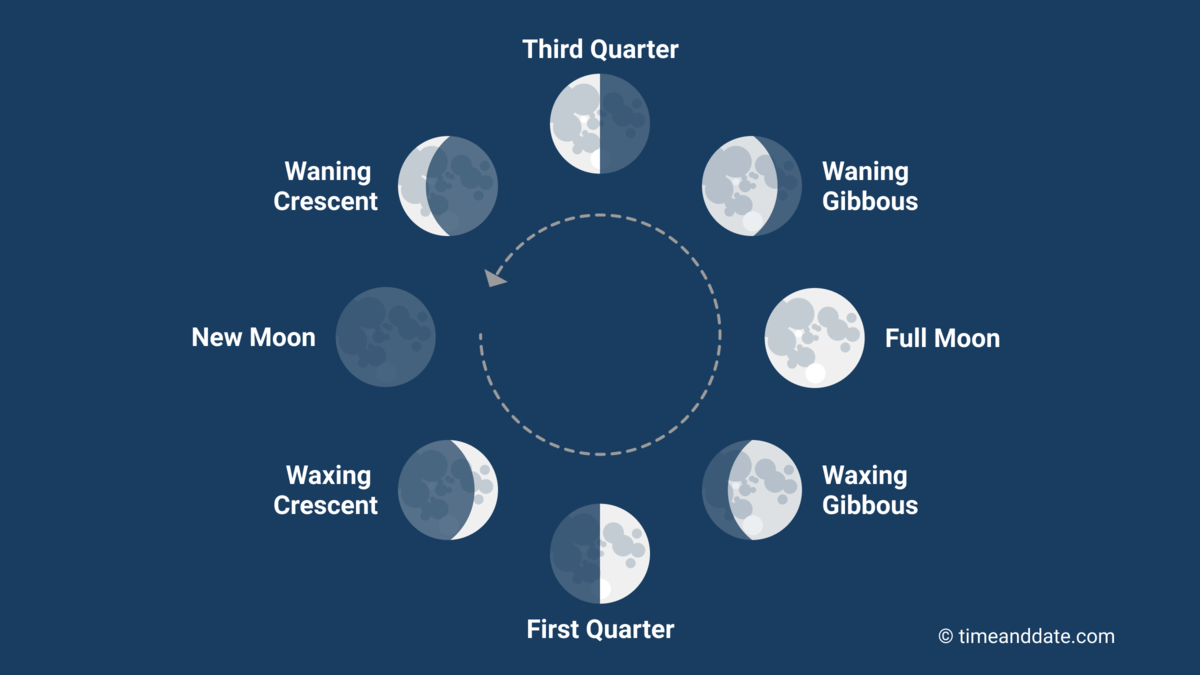2011 (1)
2016 (1035)
2017 (752)
2018 (978)
2019 (385)
2020 (175)
2021 (235)
2022 (101)
2023 (983)
2024 (800)

difference between/ full moon and new moon?
Search instead for difference btw/ full moon and new moon?
Search Results
Featured snippet from the web

The main difference between a full moon and a new moon lies in their appearance and the relative positions of the Earth, the Moon, and the Sun:
-
Full Moon:
- Appearance: A full moon occurs when the Moon is positioned directly opposite the Sun from Earth. As a result, the side of the Moon illuminated by the Sun is facing the Earth, making it appear as a complete, fully lit circle.
- Visibility: Full moons are generally bright and easily visible in the night sky.
- Positioning: During a full moon, the Earth is between the Sun and the Moon.
-
New Moon:
- Appearance: A new moon occurs when the Moon is positioned between the Earth and the Sun. In this configuration, the side of the Moon illuminated by the Sun is facing away from Earth, making it appear completely dark from our perspective.
- Visibility: New moons are typically not visible or are very faint in the night sky.
- Positioning: During a new moon, the Moon is roughly in line with the Sun, as seen from Earth.
In summary, a full moon is fully illuminated and appears as a bright circle, while a new moon is not illuminated and appears dark or completely invisible. The phases of the moon result from the changing relative positions of the Earth, Moon, and Sun in their orbits. 
:max_bytes(150000):strip_icc()/moon_phases-58b84a765f9b5880809d8d4d.png)



